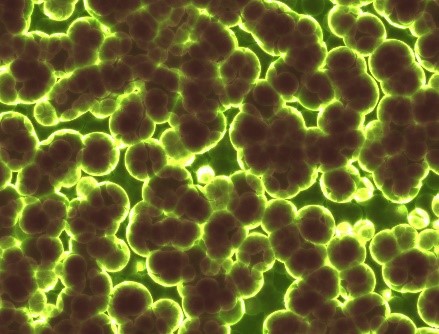Protect Yourself and Your Crew Around Sewers

Reprinted from Envirosight
For those who spend time in and around sewers, there is an increased risk of infection and disease from biohazard exposure. Wastewater and its treatment can generate aerosols containing microbiological and chemical constituents.
Wastewater workers run the risk of exposure to both waterborne and airborne disease organisms. As a result, they can easily and unknowingly interact with biohazards through inhalation and skin contact.
Wastewater employees need to understand the potential dangers that lie underground and take extra care to limit their exposure. Some hazards that workers can be exposed to include
- Waterborne diseases – These include viruses, bacteria and parasites. Common examples include amoebic dysentery and aseptic meningitis.
- Airborne aerosols – These include pathogens and chemicals, both of which are harmful when inhaled.
- Sewer flies – While they are slightly less common, there have been documented cases of allergic asthma caused by exposure to sewer flies.
Protect Yourself and Your Crew
Every sewer worker should take some crucial steps to protect their own health and the health of those around them.
Get Vaccinated. The Center for Disease Control recommends getting vaccinated against these various diseases if you work near sewers:
- Polio can be transmitted orally and can cause serious effects such as paralysis.
- Tetanus can be transmitted through cuts and can cause lockjaw and muscle spasms.
- coli can be transmitted orally through food and water or a sick animal, resulting in fever, stomach cramps, diarrhea and vomiting.
- Hepatitis A is transmitted orally through contaminated food and water or an infected person, causing liver damage, jaundice, fever and vomiting.
- Typhoid fever is transmitted orally between people, or by food and water. It causes fever, weakness, rash and stomach pain.
This list is not exhaustive. Other parasites found in sewers include salmonella, yersiniosis, encephalitis and many more. Most of these illnesses can be treated, but care often requires hospitalization and antibiotics. Polio has no treatment. Getting vaccinated helps you and those around you avoid painful and potential deadly illness, and it’s recommended that sewer workers discuss their options with a licensed medical practitioner.
Wear Personal Protective Equipment. Wearing personal protective equipment (PPE) is a proactive way to guard against any harmful biohazards a sewer worker may come into contact with. The most significant step a wastewater worker can take towards protecting their health is to use adequate PPE. The better your PPE, the less likely you are to contract a disease or infection from sewage. Recommended items for working around sewers are
Gloves – Keep bacteria and viruses off skin, and protect yourself from abrasions that are highly susceptible to infection.
Boots – Protect feet and lower legs from contact with biohazards, and keep your boots at work to prevent the spread of dangerous bacteria to homes.
Safety Glasses or Face Shield – Protect eyes from contact with biohazards via splashes and sprays.
Respirator – Filter out airborne toxins, as well as splashes and sprays.
Coveralls – Protect the body and clothing from contact with biohazards.
While this equipment helps protect sewer workers from exposure to biohazards, it can only be effective when used properly and consistently.
Clean Your Equipment. It is important to make sure the sewer equipment that’s used every day is kept clean and sanitary. This can be done by
- Wiping the cable and hoses with an antibacterial solution when retracting them.
- Cleaning all cameras, crawlers and nozzles with an antibacterial solution.
- Sanitizing door handles, controls, keyboards/mice and work surfaces.
Protect Your Family. The last thing anyone wants is for the people they love to get sick. To prevent that, shower and disinfect yourself before returning home, and never take your work clothes or shoes into the house. Those items can easily be cleaned on-site or laundered professionally to keep work contaminants far away from the home.
Practice Safe Hygiene
At the end of the day, there is a simple list of do’s and don’ts that can keep you safe and healthy. Make sure you:
- Wash hands thoroughly and frequently before eating, drinking and smoking
- Wash hands before and after using the bathroom and contacting contaminants
- Wear PPE
- Use barriers between skin and sewer surfaces
- Use gloves to prevent skin abrasions
- Keep wounds covered with clean, dry bandages
- Thoroughly flush eyes with water if in contact with contaminants
- Change into clean work clothing daily
- Sanitize or change footwear before leaving work and before entering vehicles or buildings
- Clean equipment
- Eat in designated areas away from biohazards
- Avoid inhalation of infectious agents and aerosols
- Always wear a respirator
And don’t:
- Touch any part of your face, genitalia, open sores or cuts while working
- Smoke or chew tobacco or gum while working
- Wear work clothes at home or outside the work environment
- Handle equipment without gloves

